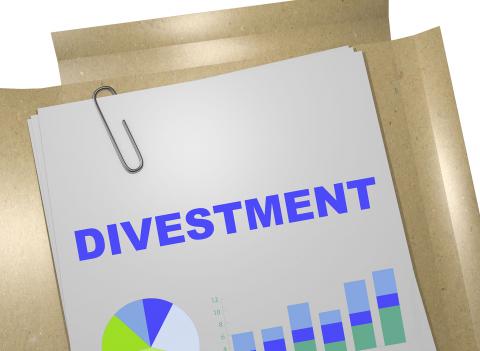The Royal Bank of Canada’s climate policy has come under close scrutiny from its stakeholders

Key Findings
The Competition Bureau has launched an investigation into alleged false and misleading environmental representations made by the Royal Bank of Canada.
The complainants allege that while RBC markets itself as an institution committed to tackling climate change, it simultaneously engages in large-scale, unbridled financing of fossil fuel industries.
Greenwashing hinders progress in the fight against climate change—corporations that promote false solutions divert resources away from genuine initiatives needed to facilitate a just and successful transition to a sustainable economy.
Financial institutions, under greater stakeholder scrutiny, are expected to align their sustainability claims with tangible, measurable and impactful efforts—ensuring a more sustainable and responsible banking sector.
The Competition Bureau—an independent law enforcement agency of the Canadian government, akin to the U.S. Federal Trade Commission—has launched an investigation into alleged false and misleading environmental representations made by the Royal Bank of Canada. The probe was in response to a complaint filed by Canadian law charity Ecojustice, on behalf of six concerned individuals.
The complainants allege that while RBC markets itself as an institution committed to tackling climate change, it simultaneously engages in large-scale, unbridled financing of fossil fuel industries. The application filed by Ecojustice hinges on three pivotal arguments:
- RBC has publicly portrayed itself as a supporter of the Paris Agreement but instead engages in a pattern and practice of financing companies and projects that are emitting greenhouse gases, undermining the climate goals of the agreement.
- The representations made by RBC rise to the level of materially false or misleading statements in contravention of Section 74.01 of Canada’s Competition Act.
- RBC’s allegedly materially false or misleading statements were made with the primary intent of promoting its business interests—specifically to appeal to sustainability-conscious clients.
The applicants want the Competition Bureau to order RBC to remove all representations around its support for the Paris Agreement and sustainable financing and to impose a fine on RBC, to be credited to environmental or indigenous-led organizations in Canada.
Greenwashing: Implications and negative outcomes
Greenwashing has seen a concerning proliferation in recent times. Several high-profile investigations of Goldman Sachs, Bank of New York Mellon and Deutsche Bank have shed light on the prevalence of misleading environmental claims within the financial services sector. As climate change gains more prominence in public discourse and concern, corporations are faced with increasing pressure to take meaningful action in addressing this issue. Now more than ever, companies have a strong incentive to not only be seen as actively contributing to solutions but to actually be doing so. Sustainability initiatives must be genuine and coupled with concrete, credible action to have any impact.
Companies that fail to ensure their public representations are accurate put the interests of the company and its shareholders in harm’s way. Organizations discovered to be making false or exaggerated environmental claims risk negative media coverage, brand impairment and lasting reputational damage. The resulting erosion of public trust and reduced consumer satisfaction has been linked to declines in corporate profitability metrics. Regulatory bodies worldwide are intensifying efforts to combat greenwashing and are establishing stricter guidelines and rules regarding environmental claims.
In Canada, the Competition Act explicitly prohibits businesses from making material misrepresentations to the public to advance their business interests. Violators run the risk of negative findings, fines and potentially costly and protracted corrective action plans.
More significantly, greenwashing hinders progress in the fight against climate change. Corporations that promote false solutions divert attention and resources away from genuine initiatives needed to facilitate a just and successful transition to a sustainable economy.
RBC’s climate policy, actions and IEEFA findings
RBC’s recent conduct has done little to assuage stakeholder concerns about the depth of its commitment to climate action. Despite being recognized as the top funder of fossil fuels globally last year, the bank has not signaled any intentions to cut back on financing fossil industries. The degree of transparency surrounding RBC’s climate disclosures also appears to be declining. In its 2022 Climate Report, RBC narrowed down the coverage of its financed emissions disclosure to just three sectors, compared to previous reporting across all sectors. RBC also made significant downward revisions to its previously reported financed emissions from lending for 2021. The move raises eyebrows due to the scale of the restatements (oil & gas and power sector financed emissions for 2021 were lowered by 79% and 82%, respectively) as well as a lack of sufficient clarity around methodology and data estimation.
Given RBC’s apex position in the Canadian banking industry, it is reasonable to expect the bank to set and meet high standards. In a recent report, IEEFA analyzed policy documents released by the bank that detail its climate and sustainable financing program. IEEFA concluded that RBC’s targets are inadequate, and its policies and practices are not aligned with its climate goals. In particular:
- RBC lacks a robust plan to reduce investment in fossil fuel projects, including a plan to divest from fossil fuels.
- RBC’s failure to consider expanding divestment assumes it can meet emission reduction goals by supporting oil and gas development. However, the fossil fuel industry has demonstrated weak performance in greenhouse gas emissions reduction.
- RBC has effectively exempted its asset management arms from policies to reduce financial commitments to fossil fuels.
- The bank’s goal of achieving net-zero emissions in lending by 2050 conflicts with Canada’s goal of achieving net-zero emissions in the economy by 2050, because investments must precede implementation.
- Even the 2050 target is hedged with qualifications that suggest a future lackluster commitment driven by commercial interests and not climate solutions.
The findings in IEEFA’s report were forwarded to the Competition Bureau in Canada by Ecojustice to aid in the ongoing inquiry. Lawyers at Ecojustice have also responded to a follow-up query from the bureau seeking clarification on a number of issues regarding RBC’s climate policy.
Conclusion
The Competition Bureau is now assigned to review the evidence at its disposal and is expected to make a pronouncement on the matter in the near future. The Competition Act requires the bureau to consider the general impression conveyed by RBC’s representations, as well as their literal meaning. Regardless of the outcome of the probe, the bureau’s decision to move forward with a formal inquiry regarding one of Canada’s leading financial houses sends a clear signal to other market participants about the importance of transparency, accountability and effective climate action. Financial institutions, under greater stakeholder scrutiny, are expected to align their sustainability claims with tangible, measurable and impactful efforts. Ultimately, this ensures a more sustainable and responsible banking sector, not only benefitting clients and shareholders but also contributing to the achievement of Canada’s broader climate goals.

















